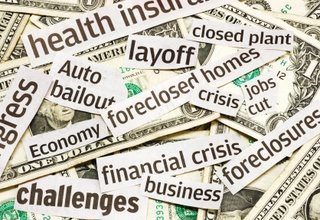 This is a great question. Where did all the money go that was being pumped into our economy from 2002 to 2006? It seems like all the money globally disappeared overnight. The truth to the matter is there was never any money. Everything that was being bought and sold was on credit.
This is a great question. Where did all the money go that was being pumped into our economy from 2002 to 2006? It seems like all the money globally disappeared overnight. The truth to the matter is there was never any money. Everything that was being bought and sold was on credit.
The banks, credit card companies, car dealerships, and other creditors were extending credit to everyone. These creditors also were lowering there credit standards. There is a reason why the current credit scoring process is in place. The FICO score model is calculated risk software that determines the likelihood of a borrower paying back a creditor. Evidently the creditors were ignoring this risk based software.
I am sure you can remember all the 0% interest rate loans on furniture, electronics, cars etc……… Some of these advertisers also sold you that there would be no payments for 3 years. This type of activity made no financial since, since people with high risk scenarios were being granted loans they could not afford.
With lending “its back to the basics”, if you cannot afford the loan, you don’t buy. I strongly disagree with getting furniture and electronics on 0% interest cards. My thoughts on this are what if you loose your job. How are you going to pay all of this off?
Now you are stuck with 0% interest loans that you cannot pay back.
This is what happened during the last 2 years. All of these loans started failing because of a recession and families over extending themselves. Is a Depression lurking around the corner? Unemployment during the “Great Depression was up to 25%. Now don’t get too alarmed yet, currently the unemployment rate is 8.5%. This unemployment rate is expected to go up to 10% by the end of the year.
There are signs of improvement in the market because of companies trimming the fat. Current economists claim we have hit rock bottom and are seeing signs of a recovery.
Needless to say, we as Americans are going to find ourselves in a different lending market. The requirements are going to be stringent. We are going to be required to have better credit scores and more savings to get loans.
Bottom line; don’t buy stuff on credit that you cannot afford to pay back the next month. If hard times fall in your lap, you might find a collection company calling you at work, at home and even on your cell phone.
Lets be smart for now on, and only purchase stuff we need…..
Author:Mike Clover
CreditScoreQuick.com your resource for free credit reports, credit cards, loans, and ground breaking credit news




